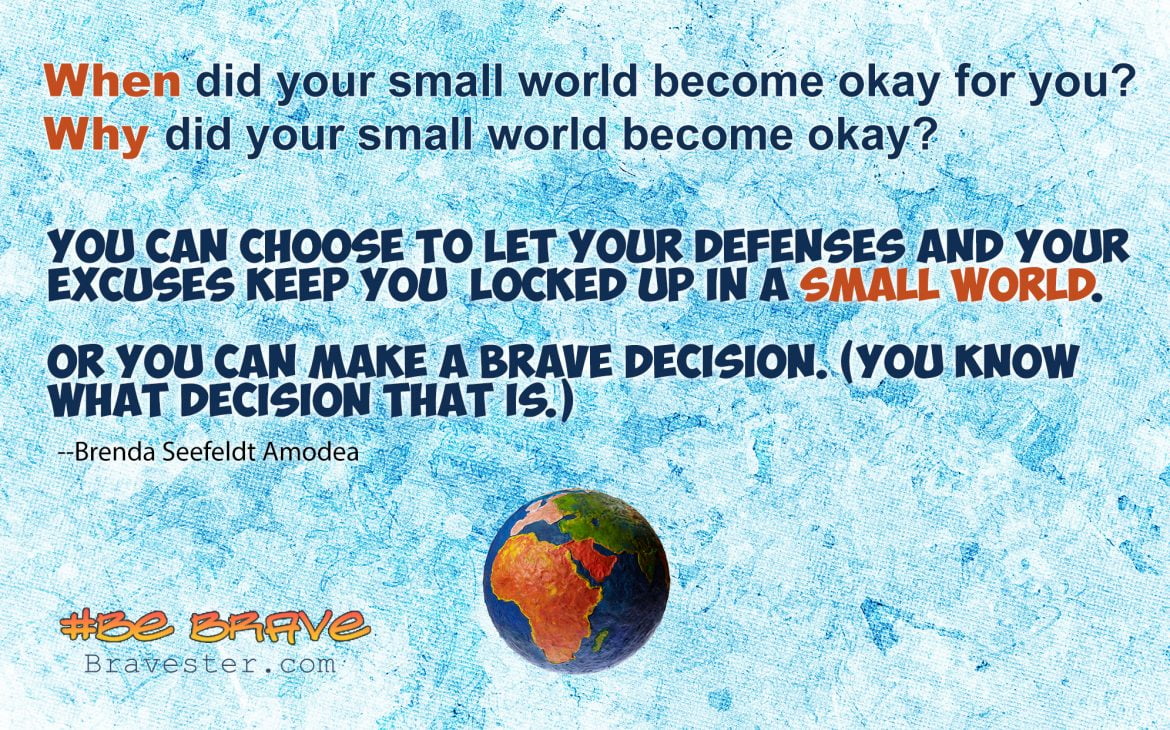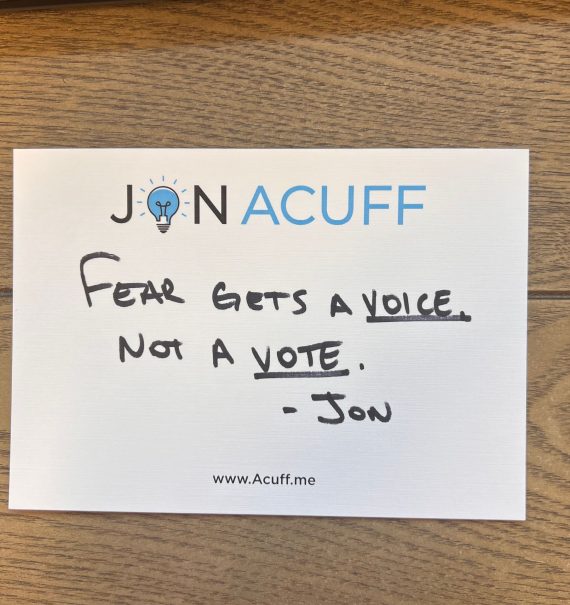Catastrophizing Your Maybe Relationship - Bravester
When you are in love, your brain changes. You also believe that the birds are singing for you personally. When you are in love, suddenly the world is a better place. The world is better because love is a brave decision. And your brain is changed.
Joy always involves relationships. Now you have “the one” and you feel like joy is pouring out of your pores.
Unless you suffer from foreboding joy and you start to feel dread that this beautiful “one” is going to break your heart.
So you start catastrophizing to protect your heart.
The three parts of your brain that become activated when you are in love are pleasure, risk, and attachment. Watch this TedTalk from Dr. Helen Fisher about the science. You feel the truth of this TedTalk because the risk of love is real.
“Love is a homeostatic imbalance.”
–Dr. Helen Fisher
Who likes to live in imbalance?
No wonder love is a brave decision.
Foreboding joy is a protective and justified behavior. When you feel joy, you believe that every traffic light is turning green because you are having a good day. Foreboding joy is “I’m not worthy of having this joy so I must sabotage it before life sabotages me.” Because certainly I’m not worthy enough to have this good thing happen to me. Those green lights I’m driving through are just leading me into a 5-car smash up.
The root here is do you believe you are worthy of feeling joy? Do you believe you are worthy?
For those who struggle with foreboding joy, you sabotage feeling pleasure, you want to avoid risk, and your attachments leave you full of insecurity. Which leads you to protect your heart so you catastrophize relationships too early.
Like this woman:
Personally I think this might be a green light. Someone who doesn’t derive an identity from social media? Someone who will put down his/her phone over dinner with you? Someone who doesn’t have to document every minute of his/her life?
Over on Facebook there are more than one Facebook groups dedicated to “Are we dating the same guy?” What kind of guys are you dating if you are catastrophizing with this thought? You actually have to join these groups which means quite a lot of women are dating these kinds of guys. Unless you are joining just to be voyeuristic about these bad relationships to give you reasons to catastrophize.
The vulnerability of dating isn’t helped if you are using dating apps which are now known to be full of scam profiles. In 2021, people reportedly lost $547 million from romance scams, an 80 percent increase from 2020. Source. Oh dear. What a mess dating apps or “love meets algorithm” have become. Actually the whole internet has become a mess. I used to believe in dating apps to get your numbers up of meeting worthy people. I’m rethinking this right now while dating app companies are using AI to clear out these scam accounts. Does that make you feel any more comfortable? This is not a justifiable reason to catastrophize the real person you had a date with.
Dating is vulnerable. Bravery always involves vulnerability. Falling in love is vulnerable, especially because it triggers the brain to light up pleasure, risk, and attachment. Dating and choosing who to date are brave decisions. No wonder you have butterflies…or nerves.
I want to call out this habit of catastrophizing of every relationship because you are too anxious about this one being a bad match. You are doing this before the relationship has proper time to grow.
This catastrophizing is keeping you locked up in a small world.
This protective habit of catastrophizing takes up large amounts of time and attention in your already busy life. You spend a lot of energy thinking about the worst-case what-ifs—on top of the bad things that just happen every day. What would you do with all that time and energy if it wasn’t lost on catastrophizing? What would you and your friends talk about if this conversation wasn’t taking up all of your time together?
This justified habit of catastrophizing can lead to heightened anxiety, prolonged feelings of physical pain, risk aversion, and less confidence in problem-solving when big issues do arise. What brave decisions could you be making instead of the harm of this rumination?
This “responsible” habit of catastrophizing seems like an effort toward acceptance of reality but it’s actually a strategy for avoidance. How much larger could your world be if you stopped avoiding love and joy at the risk of heartbreak? What if you weren’t afraid of this pain?
Love requires vulnerability. Joy requires vulnerability. Dr. Brene’ Brown in her research found that joy is the most vulnerable emotion. Why? Because deep down for whatever reasons you have, you don’t believe you are worthy of joy. It is easier to hustle for it or to find it in how you control your situations or to earn any joy you have felt. Notice the control you want over your life in each of those. Notice how you want to spare yourself from any pain.
Catastrophizing feels safe and responsible. But this is really exposing a problem within you and your struggle with your worthiness.
With vulnerability–not the exhausting search for control you are seeking–comes the possibility that you will have your heart smashed. This is a 100 percent possibility. God is always faithful. That is also 100 percent. God always redeems your pain.
You are not exempt from pain. You are not unworthy because your life has pain in it.
A failed date does not define you. Or a failed relationship. That failed date becomes a “so what.” A story. Maybe a humorous story.
Can you consider the thought that you can survive a heartbreak?
Can you bravely change the story from “no one likes me” to “some people like me?”
Can you bravely change the story from “I’m not loveable” to “Someone is going to be awful lucky to love me?” (Have some vanity.)
Can you change this loud thought of “I’m not loveable” to “My brain is telling me that I’m not loveable so I need to lead my brain a bit more here?”
Can you consider the possibility of enjoying this growing relationship and have less anxiety about it? Even if this relationship ends?
Anxiety is real as it has also become a generalized term. Is your anxiety really fear of rejection? Fear of being dumped again? Bitterness from a previous hurt? All of these make you feel anxious but the source is not anxiety.
Can you consider stopping to allow your anxious thoughts to lead your life?
Can you rethink that catastrophic thought with “I’ve had these thoughts before and I have grown through it?”
Can you trust your discerner more? The discerner in you is part-brain, part-instinct, and part-Holy-Spirit. Some dates you just know right away that it is a bad match. Trust your discerner more. Which means you may also need to trust your discerner to give someone another date. You can survive a second bad date.
Read also: There are Too Many Variables as to Why the Date Didn’t Work Out and A List to Help You Not Date Someone Who is Emotionally Unavailable.
Can you trust some of the people in your life to help you discern too?
Can you believe that you are not the sum of your mistakes?
Can you believe that you are worthy of having someone love you?
I feel you catching your breath. You want to be braver. You want to stop this self-sabotage. Today is your day to decide to live slightly braver. May you not unsee the possibility you are feeling right now.
p.s. Worthiness is your birthright. Your value was settled at the cross.








